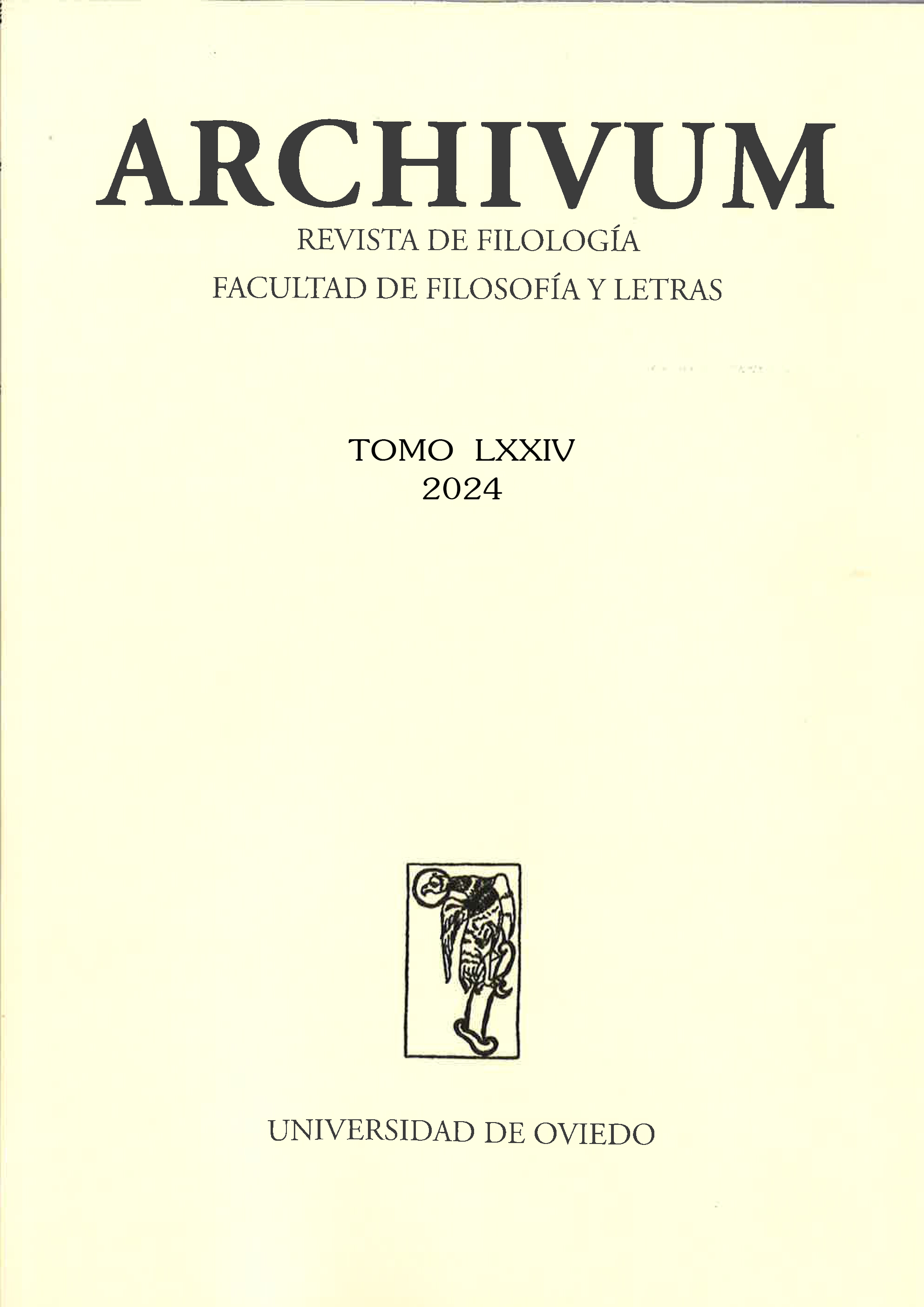Resume
This paper examines ecology and communication aesthetics in James Joyce’s “Dubliners” to explore their function in his representation of long-term self-reflexive eco/bio semiotic complexity models and Dubliners’ quest for sustainability. So, this paper argues that “Dubliners” is a sustainable cultural form of the aesthetics of ecology and communication in light of Hubert Zapf’s conceptual framework of the culture ecology paradigm that focuses on the interrelationships between nature and culture as a resource of literary creativity and production. To do so, this paper focuses on Zapf’s ideas of communication and ecology as features of culturally sustainable practices and his tools for discovering these practices, such as the triadic functional model of literature as a force of culture ecology and the transdisciplinary contexts of a literary ecology, such as the biophilic atmosphere. The importance of examining this aesthetic of communication and ecology lies in exploring their contribution to sustainable textuality as an aspect of cultural sustainability, in highlighting the functional approach to “Dubliners” as a challenge to ideas such as ‘Art for Art Sake’, and in reading the short story genre as a mode of sustainability and “Dubliners” as a model of the relationship between literature and sustainability.
Referencies bibliográfiques
(8) (PDF) Book Review of ‘Literature as Cultural Ecology: Sustainable Texts.’ Zapf, Hubert. 2016. (Review published in Ecozon@ Vol 8, No 1, 2017). (n.d.). Retrieved 10 January 2024, from https://www.researchgate.net/publication/320924659_Book_Review_of_Literature_as_Cultural_Ecology_Sustainable_Texts_Zapf_Hubert_2016_Review_published_in_Ecozon_Vol_8_No_1_2017
Alaimo, S. (2010). Bodily natures: Science, environment, and the material self. Indiana University Press.
Brazeau, R., & Gladwin, D. (2014). Eco-Joyce: The Environmental Imagination of James Joyce. https://muse.jhu.edu/pub/202/monograph/book/31061
Brick, M. (2017). Intermental Epiphanies: Rethinking Dubliners with Cognitive Psychology. Rethinking Joyce’s Dubliners, 161–173.
DeKay, M. (2011). Part IV Designing Relationships to Nature: Metaphors and Injunctions for Deep Connections. Integral Sustainable Design: Transformative Perspectives, 319–430.
Ellmann, R. (1982). James Joyce. Oxford University Press. https://books.google.com.eg/books?id=KckdAQAAIAAJ
gov.ie - New Culture Ireland Strategy 2022-2025 to bring contemporary Irish arts to an increased worldwide audience. (n.d.). Retrieved 31 May 2023, from https://www.gov.ie/en/press-release/4152c-new-culture-ireland-strategy-2022-2025-to-bring-contemporary-irish-arts-to-an-increased-worldwide-audience/
Grober, U., & Cunningham, R. (2012). Sustainability: A cultural history. https://www.researchgate.net/profile/Udo-Simonis/publication/260161203_Sustainability_A_Cultural_History_by_Ulrich_Grober_Ray_Cunningham/links/5e445a0a458515072d96cd33/Sustainability-A-Cultural-History-by-Ulrich-Grober-Ray-Cunningham
James, J. C. (2012). “Buried in Guano”: Race, Labor, and Sustainability. American Literary History, 24(1), 115–142.
Johns-Putra, A., Squire, L., & Parham, J. (2017). Literature and sustainability: Exploratory essays. Manchester University Press.
Joyce, J. (1996). James Joyce: The Poems in Verse and Prose. Trafalgar Square Publishing.
Kegan, R. (1982). The evolving self: Problem and process in human development. Harvard University Press.
Keller, L. (2012). Beyond imagining, imagining beyond. PMLA, 127(3), 579–585. https://doi.org/10.1632/pmla.2012.127.3.579
Koltermann, R. (1996). Dürr, Hans-Peter, The Future is an Untrodden Path: Meaning and Design of an Ecological Lifestyle. Theology and Philosophy. https://ixtheo.de/Record/1800070365
MacDuff, S. (1906). “Scrupulous Meanness,” Joyce’s Gift, and the Symbolic Economy of Dubliners. Economies of English, 181.
Meklash, N. (2023). A Cultural Ecological Reading of Human-Nature Interconnectivity in Mahmoud Darwish’s “The Second Olive Tree”. Journal of Scientific Reasearch in Arts, 24(1), 94–109. https://doi.org/10.21608/jssa.2022.169039.1438
Newbury, M. (2012). Fast zombie/slow zombie: Food writing, horror movies, and agribusiness apocalypse. American Literary History. https://academic.oup.com/alh/article-abstract/24/1/87/150315
O’GRADY, J. (2003). How sustainable is the idea of sustainability? Interdisciplinary Studies in Literature and Environment. https://www.jstor.org/stable/44086083?casa_token=VcAjFH18WfMAAAAA:PWdejo4W0D8qkeTX3tIX6bqCq3Q4O2JD6FojTyhDyVmZSfUmXRH-1PJvzHe7x3VUlLS3PIXMZ9Y0FvYEJBQlswctfTgl9wgpyfQU_pwswJbPFFcZHyfx
Philippon, D. J. (2012). Sustainability and the humanities: An extensive pleasure. American Literary History, 24(1), 163–179.
Pietrzak, K., & Widger, D. (2008). Dubliners, by James Joyce. 1–299.
Rigby, C. (2011). Gernot Bohme’s ecological aesthetics of atmosphere.
Slovic, S. (2012). Sustainability in America. American Literary History, 24(1), 180–188.
Studies, H. Z.-E. and A., & 2012, undefined. (n.d.). Ecocriticism and cultural ecology. Springer. Retrieved 15 May 2021, from https://link.springer.com/chapter/10.1007/978-3-476-00406-2_18
Williams, R. (1975). The Country and the City. Oxford University Press. https://books.google.com.eg/books?id=3o57NbjApJkC
Wondrich, R. G. (2006). “All the Seas of the World”: Joycean Thresholds of the Unknown. A Reading of the Marine and Watery Element from Dubliners to Ulysses. na.
Zapf, H. (2012). Ecocriticism and Cultural Ecology BT - English and American Studies: Theory and Practice (M. Middeke, T. Müller, C. Wald, & H. Zapf, Eds.; pp. 253–258). J.B. Metzler. https://doi.org/10.1007/978-3-476-00406-2_18
Zapf, H. (2016a). Handbook of ecocriticism and cultural ecology (Vol. 2). Walter de Gruyter GmbH & Co KG.
Zapf, H. (2016b). Literature as cultural ecology: Sustainable texts. Bloomsbury Academic.

Esta obra ta baxo una llicencia internacional Creative Commons Reconocencia-NonComercial-EnsinDerivaes 4.0.

